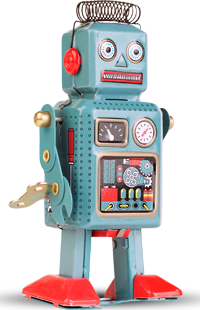The last few articles I have written seem to have been leaning more towards academics rather than something that most people would be excited to read.

Not to say that academic articles are not fun to read(I certainly spend most of my week scanning the pages of documents that would put most to sleep with an excited fervor).
Rather, it would be foolish of me to not admit that some of my older writings can be a little dense, (and full of grammatical errors) especially for those outside academia.
So lets go ahead and try to get the best of both worlds, that way I get to talk about the things I'm researching with my professors every day, and you all can have an exciting read.
The Great Space Cash Race: A Galactic Journey of Economic (Astro)Opportunity
Space, the final frontier—of economic opportunity, that is. As we gaze into the vast, star-studded expanse, it's hard not to imagine the possibilities that await us. But what does space exploration really mean for our future economy?
Will we become a galaxy of flourishing space merchants, or will we find ourselves lost in a cosmic money pit?
Join me, your interstellar economic explorer, as we embark on a journey through the financial cosmos, sprinkled with a dash of humor and a sprinkle of academic rigor.(I promise using a hook like this was just to have the nostalgia of eighth grade writing and not because I thought it sounds good...really)
The price tag of space exploration can be astronomical (pun intended), but don't let that deter you, dear reader. With great risk comes great reward, and in this case, the potential economic benefits are out of this world.(Yes back to back puns, hate me, I don't care)

As countries engage in a cosmic tug-of-war for space dominance, investments in space-related technologies and infrastructure are skyrocketing faster than a rocket at liftoff.
According to a 2019 report by Morgan Stanley(I know I said i wasn't going to cite anyone, I lied), the global space economy could be worth more than $1 trillion by 2040. How's that for a return on investment?
The main drivers of this growth include innovations in satellite technology, space tourism, and even asteroid mining. Mind you that report was done over 4 years ago now(yes 2019 was 4 years ago, spooky right?) and the innovation since then, I'd argue, has dwarfed that projection.
I, for one, am eagerly awaiting my first zero-gravity vacation and tennis match, complete with a postcard-perfect view of Earth.
But as with any new frontier, the space economy isn't without its challenges. Space debris, for example, is becoming an increasingly pressing concern. It's a bit like an out-of-control cosmic garage sale, with everything from defunct satellites to discarded rocket stages cluttering up Earth's orbit. I was so enthusiastic about this concept I actually wrote an entire paper on it for one of my professors titled "rubbish rocketeers". I may have to make a return to that and do some editing for y'all to read.
And let's not forget about the need for international cooperation, because who wants a space race without teamwork? (Cold war anyone?)
One of the most crucial challenges we face in this interstellar economic adventure is ensuring the equitable distribution of benefits(yes, equal rights, the never ending battle of our society it seems). After all, we wouldn't want only a select few to enjoy the fruits of our cosmic labor. The key to a sustainable space economy lies in fostering a culture of inclusivity and shared prosperity, both on and off our home planet.

So, what does the future hold for space exploration and its economic opportunities? Will we witness the dawn of a new era, where intrepid entrepreneurs carve out their niche among the stars? Or will the pitfalls of space commerce prove too formidable to overcome?
Only time will tell, but one thing is certain: as we boldly venture into the cosmos, we must be prepared to confront the challenges that lie ahead, armed with equal parts ambition, innovation, and cooperation.
Together, we can navigate the vast expanse of the unknown, forging a path to prosperity that transcends the boundaries of our pale blue dot.
As you ponder the tantalizing possibilities of the space economy, always remember: the sky is no longer the limit. It's just the beginning. So, buckle up and hold on tight, because our journey through the financial cosmos promises to be a thrilling, enlightening, and downright entertaining ride.........
.......Unless the robots have something to say about it.
Rise of the Robots: A Tale of AI, Economic Marvels, and Workforce Woes
Gather 'round, dear readers, as if the first section wasn't ubsurd enough to think about, now we delve into the fascinating world of artificial intelligence (AI) and its impact on our economy and workforce.

Picture a future where machines are our allies, boosting productivity and fostering innovation. It's like having your very own mechanical Mary Poppins—practically perfect in every way!
But, as with all good stories, there's a twist.
Will AI prove to be our economic savior, or will it leave millions of workers out in the cold?
Buckle up and join me on this thrilling, slightly comedic, and academically rigorous journey through the realm of AI. (This is the last middle school hook of the article I promise).
First, let's take a moment to appreciate AI's potential economic benefits.
According to a 2020 report by PwC, AI could contribute a staggering $15.7 trillion to the global economy by 2030. That's enough to make even the most skeptical economist's jaw drop. To put that in perspective if you add up all the taxes the United States of America collects in a single year, you barely break through the $3 trillion dollar mark.
AI promises to revolutionize industries by enabling new business models, streamlining processes, and driving growth. It's like having a supercharged, ultra-efficient assistant who never takes a sick day or asks for a raise.
I know for me its increased productivity by literally hundreds of percents, and has saved me enormous amounts of time so now instead of spending 14 hours a day editing and scouring through articles before I can finish writing, I'm only spending an hour or two so the other 12 hours can actually be put towards creating new things or other projects like this very article!
It's like a calculator but for writers and researchers of humanities.
But wait, there's a flip side to this seemingly rosy AI-powered future. As machines become smarter and more capable, they threaten to displace millions of jobs, particularly in routine and low-skilled occupations. It's like a high-stakes game of musical chairs, but with robots playing the music, and the chairs vanishing beneath us. The potential repercussions are vast, from exacerbating income inequality to fueling social unrest.

So, what can we do to ensure that AI becomes an economic ally rather than a job-stealing foe? The answer lies in education, reskilling programs and a shift in what we consider "valuable work". By investing in workforce development, governments and businesses can empower workers to adapt to the evolving labor market. It's like turning a caterpillar into a butterfly—by learning new skills and embracing change, workers can spread their wings and soar to new heights. ( OK that one was a bit cheesy but it paints the picture the best).
By creating better access to understanding the many technologies available to any individual with an internet connection or even just access to a public coffee shop, we can not only help people find jobs in this technological superstorm of a job market but also create and foster careers that were once thought science fiction at quantities that also seem just as fictional.
Perhaps with this shift artists, musicians, writers and everything in between can start to be valued a bit more as many of the "needed" jobs are fulfilled.

To put this in terms people of our generations can understand better, since the 1950s we have seen one job completely fall off the map due to automation.
One single job that if I brought it up to you, most would laugh at, and even be annoyed by. Only the most expensive and historical buildings with have one.
What is this prestigious and nearly extinct job that use to be found in every building taller than ten stories? Elevator Operators, prior to the automation of elevators they were essentially a requirement yet now are not only seen as non-existent but also many of society would be confused by even needing one.
This is not to put down on people passionate about elevators, in fact its quite the opposite, with the automation of elevators and ease of use comes more elevators, with more elevators comes more repairs. Leading to even more people working on and around elevators, just more behind the scenes now. The point of me bringing this up is not to highlight the amazing life of an elevator repair man (if you think about it, its gotta be kinda wild sitting in an elevator shaft 30 stories up wondering if you fixed it right.) but rather to explain that a job that everyone use to think was required and needed was eliminated by automation but ended up creating four more types jobs around that very technology.
As if all that wasn't a lot to take in, as brought up detail in my last article,AI and robots may create a friction not foreseen by most. The concept of civil rights and freedoms of sentient technology.
A concept that many would not even contemplate and many more would call a fairy tale.
However the further I research into consciousness, Artificial Intelligence and political history, the more confident I am that this isn't just a possibility, but an absolute eventuality.

The arguments on what is and isn't a person has gone on throughout the ages, from the founding fathers deciding what fraction of a man slaves were. To the early writings that Jean-Jacques Rousseau references of explorers in "savage lands" and how 'man like' the savages were there or even the monkeys.( I will have to do an entire article on these writings specifically, because as I read them the more I realized how much it applies to this very topic).
As crazy as it is now thinking that a human being could be considered only "three-fifths" of a man in our very own constitution, I wouldn't be surprised if future generations look back on us with the same level of absurdity in how we view our robot servants.
However, before I dive into this rabbit hole of an argument, I must digress.
As we embark on this wild ride through the world of AI, the impact on our economy and workforce remains uncertain. Will we harness the power of AI to usher in a new era of prosperity, or will we succumb to the challenges that loom on the horizon? The choice is ours, dear reader, and the stakes have never been higher.
So, the next time you find yourself marveling at the wonders of AI, remember: with great power comes great responsibility. And perhaps, just perhaps, we can navigate this brave new world with a sense of humor, a dash of wit, and a commitment to creating a future that benefits us all.
Charting a Course Through Uncharted Territory
And so, dear reader, our journey through the treacherous yet exhilarating worlds of space exploration and AI draws to a close. By acknowledging the challenges that lie ahead and actively seeking solutions, we can navigate these uncertain times with confidence, curiosity, and a touch of humor.

As we embrace the galactic possibilities of space exploration, and ponder the transformative power of AI, let us remember that our greatest strength lies in our ability to adapt, learn, and cooperate. Together, we can chart a course through uncharted territory, creating a future that is not only economically prosperous but also equitable and sustainable.
So, the next time you find yourself contemplating the complexities of our rapidly changing world, remember this: with unity, innovation, and a bit of wit, there's no challenge too great for us to overcome. And perhaps, just perhaps, we can continue to share a laugh or two as we forge ahead into the great unknown.
Comments